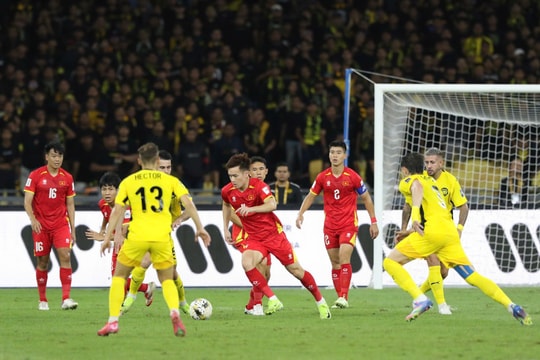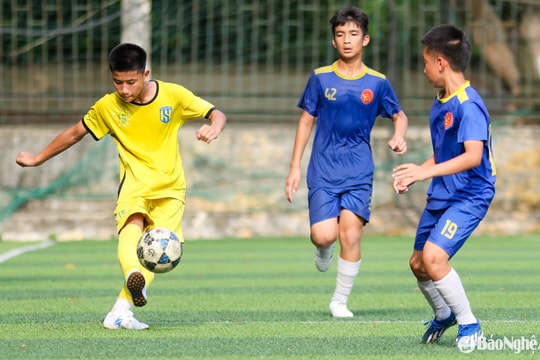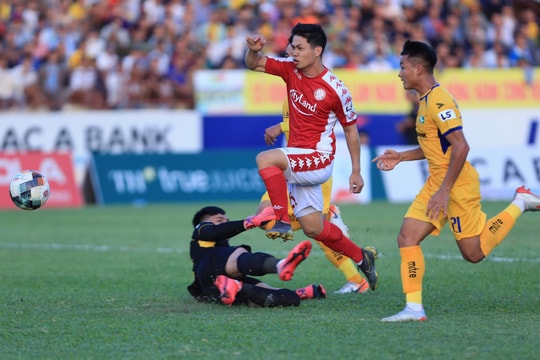Vietnam Football: Third generation boss
(Baonghean.vn) - Vietnamese football currently has three types of bosses: bosses who spend money, bosses who have money and bosses who make money. In each specific person, sometimes there are hidden faces that are intertwined and difficult to separate.
Vietnamese football during the subsidy period used money from the state budget, of course there was no concept of making money. After many ups and downs, there are not many "old faces" left, perhaps only Mr. Thanh of SLNA, who is nearly 70 years old.
They are experienced managers but football business is a foreign matter to those who once dominated Vietnamese football.
Moving to professional football, many locally managed football teams, police, army and railway teams "died young" and of course the club owners also changed careers.
Every house plays football
During the model transformation, there appeared many cement, bank, steel bosses… Whoever has a lot of money can also own a football team. They go to the football field as a weekend hobby, invest money in the team and go with friends and family to watch their players play in their free time.
Profits from other businesses are cut and poured into the football field to create a brand and joy rather than seeing football as a business.
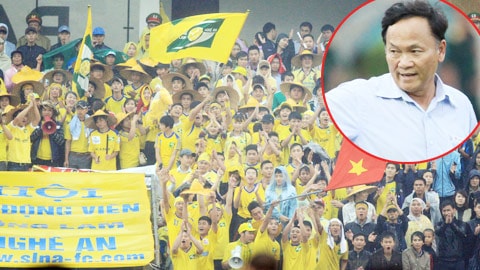 |
| Mr. Thanh is the first generation of football club managers still attached to the field. Photo: Internet |
Among the (moneyed) bosses, one can still vaguely see the figures of tycoons who have both money and are developing strategies to make money from football. People like Mr. Duc, Mr. Thang or Mr. Kien (currently in trouble with the law)… are the pioneers of professional football in Vietnam, but in reality, they have not yet gone the full way that people expected.
Mr. Duc has considered "exporting" players, many brands have sought out clubs with professional models in Vietnam such as VP Milk. After a period of approaching Long An football, Mr. Thang changed the name of Dong Tam Long An Brick Club to make the team follow the model of a professional European club.
While Mr. Hien is "sowing" longer football projects, a series of other bosses such as Mr. Long, Mr. Thuy, Mr. Truong, and Mr. Tho have turned their backs on the football field.
Partly because of the difficult business, partly because of the fact that “life is not a dream” when going to the field, he soon left football. Many winged declarations flew away, a series of football clubs were dissolved, given away - sold...
3rd generation
The nature of professional football is to turn a game into an entertainment industry, which means making money, lots of money, and using that money to feed football.
Owner Roman Abramovich initially bought Chelsea like that, but in the long run, he still had to gradually create a management system to control finances and make a profit.
Even if the owners of MU and Man City spend tens of billions of dollars hiring coaches and buying players, they must quickly generate revenue to compensate for it so as not to fall into the "financial balance" law.
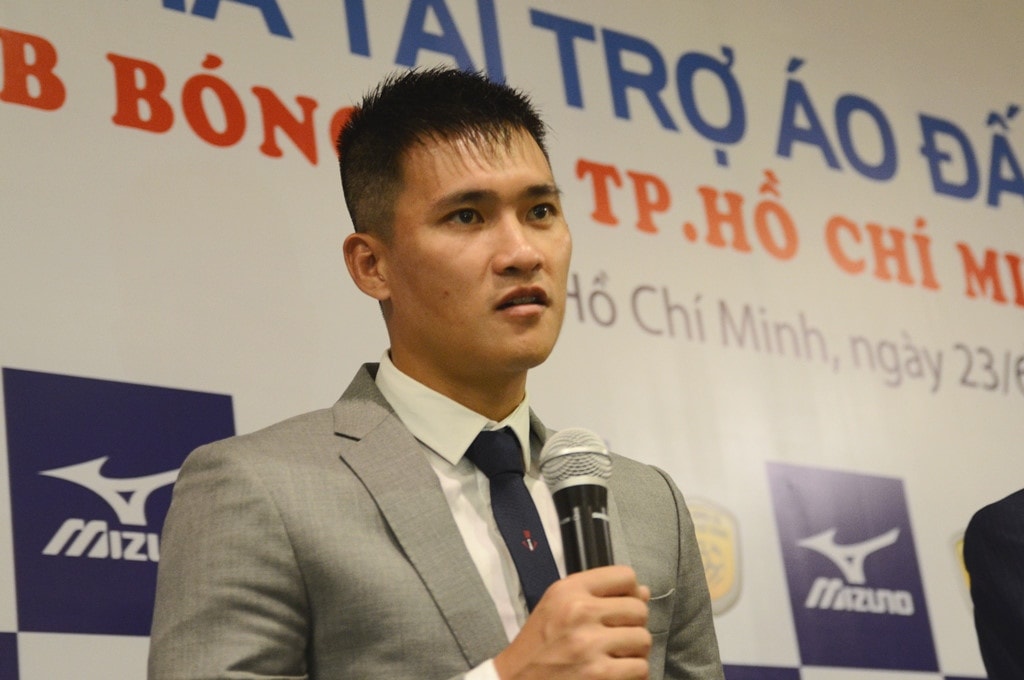 |
| Cong Vinh is rolling up his sleeves to do everything from PR to sell tickets, to investing in LED billboard systems to collect money. Photo: Internet |
Neighboring Thailand, clubs have now turned to promoting football business, starting with investing in football fields according to English Premier League standards, increasing television revenue, selling even the smallest souvenirs... to recoup investment money.
Meanwhile, the total annual revenue of VPF Company is currently only about 100 billion VND, accounting for less than 15% of the total budget that football teams have spent. No club in Vietnam owns a football field, so of course they cannot exploit money from these "real estates" that are always in prime locations.
50% of the clubs in the V-League currently cannot sell advertising on their shirts and on the stadium billboards. The image rights of the clubs are currently quite far away. Fortunately, some national players have personal advertisements that are more related to their image on the national team than to their club.
There are many reasons, but it seems that the main one is that there is no good manager in football business at both national and club level. 10 years ago, Mr. Thang begged coach Calisto to leave Portugal to come to Vietnam to build a professional club model. But now, Long An team has been relegated twice, there are not enough youth teams, and the training center in Ben Luc has not been upgraded.
Mr. Duc also expressed his frustration after the scandal with VFF and threatened to quit football. The professional football dream of the two bosses who have had a great influence on Vietnam's football field for more than a decade is gradually fading like a bubble.
Besides, there are some bosses who have started to make money from football. Hanoi FC has boldly removed the T&T brand from its shirt, thereby signing a sponsorship contract worth up to 1 million USD with Thailand's SCG Group, not to mention other advertising revenues of nearly 10 billion VND.
Mr. Hien completed the investment in the new Hang Day stadium and put it into operation, which means that Hanoi T&T has completed the path of professional football and can exploit all the ownership rights it has.
Mr. Vinh of Ho Chi Minh City rolled up his sleeves and did everything from PR to sell tickets to investing in LED billboard systems to collect money.
For Vietnamese football to develop, a new generation of "bosses" is needed, that is, businessmen who are able to make money for football, not use football to make money.

.jpg)
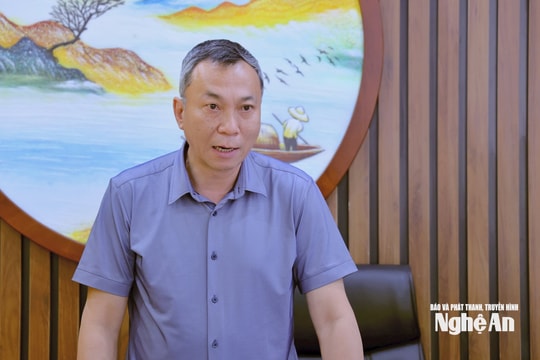
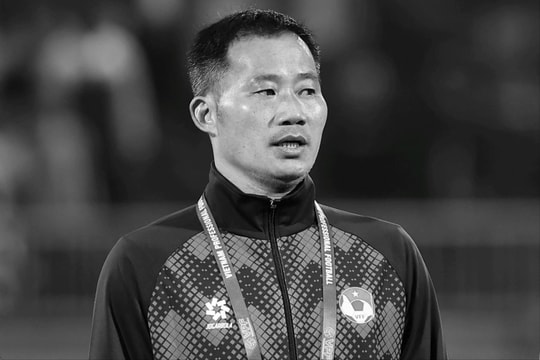
.jpg)
